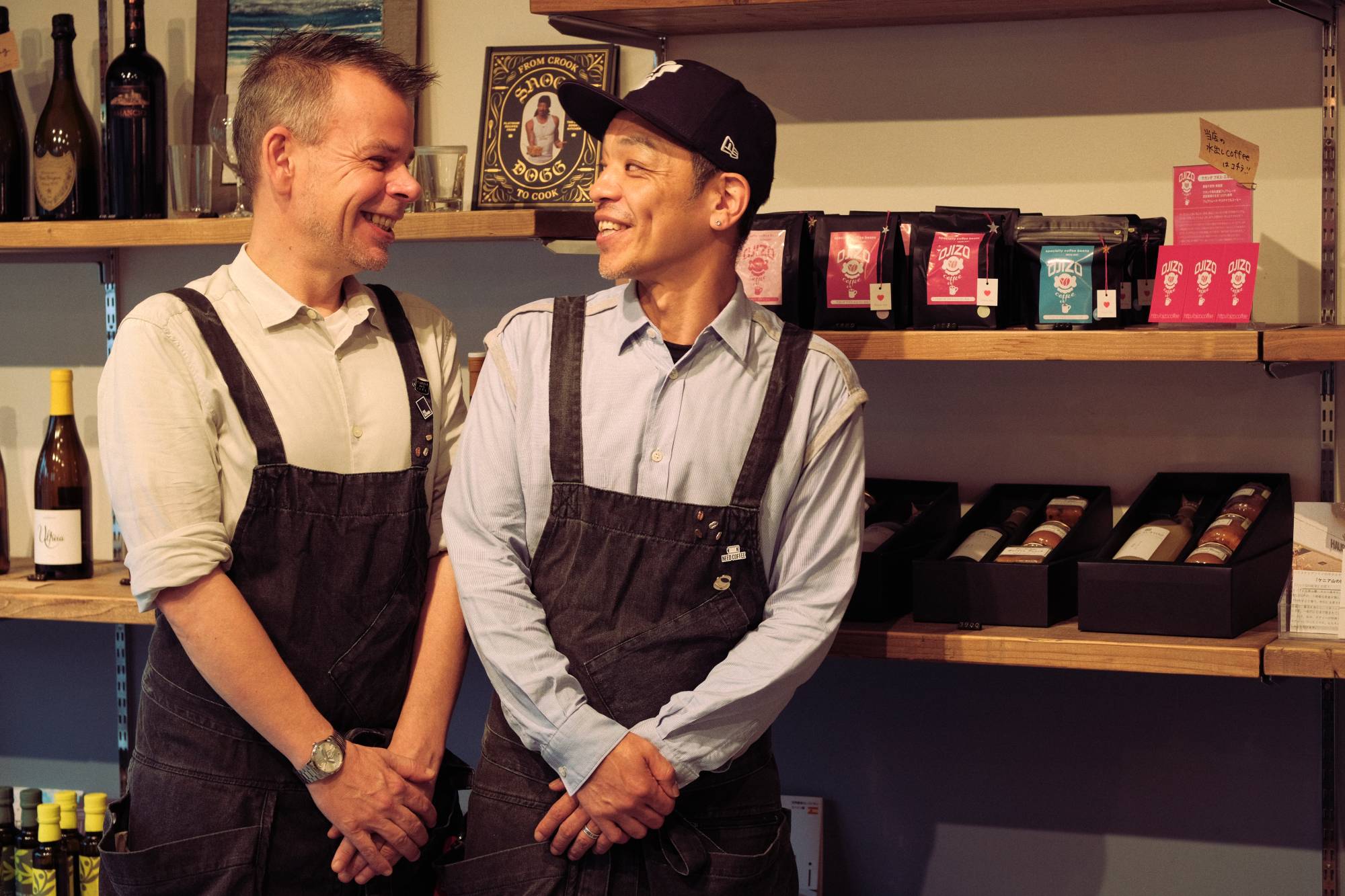As the seasons delicately and hesitantly shift, and the country mimics this slight tilt in the opening of its borders and the minds of its citizens, there are still individuals who continue to push for change.
Using coffee as an agency for progress isn't the most obvious choice, however, as the duo behind Ojizo Coffee has proven, it can be an effective apparatus for repositioning the way we deal with and accept problems such as gambling, financial difficulties, addiction, disability and homelessness.
Earlier this year, Stephen Milne, 47, and Fumihiro Tanaka, 48, partners in life and business, established Ojizo Coffee and its parent organization Social Shift to quietly revolutionize Japanese attitudes toward those aforementioned social issues. After all, they are likely to affect most people at one point in their lives. Milne, a native of Edinburgh, and Tanaka, who hails from Tokyo's Ota Ward, met six years ago after Milne relocated from Kagoshima where he lived for two decades and worked as an IT manager and buyer for a furniture company. The pair now live and work in Toshima Ward's quietly thriving Higashinagasaki area, which has seen a good deal of change due partly to the popularity of communal hub and coffee shop Mia Mia.

















With your current subscription plan you can comment on stories. However, before writing your first comment, please create a display name in the Profile section of your subscriber account page.